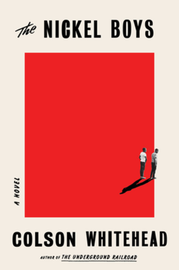The Nickel Boys
Posted on 11/16/2019 in misc

Colson Whitehead's previous book, 2016's Underground Railroad, won a Pulitzer. The Nickel Boys might be a better book. The story follows Elwood, an African-American teenager in early 60s Tallahassee FL that dreams of going to college and living a life Dr. Martin Luther King would be proud of. That plan gets derailed when he hitchhikes to school in the wrong car and ends up in "reform" school for being a passenger while black.
Reform school in early 1960s Northern FL for a black teenager is exactly what you expect, only 100X worse. I spent much of the book wondering how close to true this story is. Whitehead assures us in the epilogue that the story is fictional, although it was inspired by the news stories of atrocities at the Arthur G Dozier School for Boys in the Marianna FL, and Colson borrows a few details from the Dozier School for the Nickel School. Authorities eventually unearthed 81 bodies there, if you want a hint about Elwood's time in reform school. Underground Railroad often blurred the lined between historical fiction and fantasy, and The Nickel Boys does the same sort of thing. The book is fiction, but absolutely everything in it could of and probably did actually happen in the Jim Crow era south. Elwood's time in "school" passes with him trying to make sense of the brutality of everyday life there while keeping his youthful optimism powered by the words of Dr King. His best friend at school is Turner, a more savvy and cynical kid who looks at life as a black kid in the South as an obstacle course, and the way to survive is to avoid the obstacles, not take them on ala MLK. Ultimately, Elwood's idealism wins out.
The final section of the book picks up with Elwood as an adult. humping boxes up and down stairs as a laborer in 1979 NYC. It's a far cry from the college educated life he dreamed of as a hard-working straight-laced teen in Tallahassee. There is more here to discuss, but I don't want to ruin the ending.
There was a passage in the book that really hit me.
Their daddies taught them how to keep a slave in line, passed down this brutal heirloom,” writes Whitehead.
And really, that is what this book is about. It's a story of how white America managed to keep slavery alive. How it manages to keep slavery alive, even to this very day. I often think about the lives vanquished in pointless wars. How many great thinkers, leaders, inventors, etc. did we kill in war? How many great thinkers, leaders, inventors, did we kill with slavery? How many great thinkers, leaders, inventors, are we still killing today with racism?